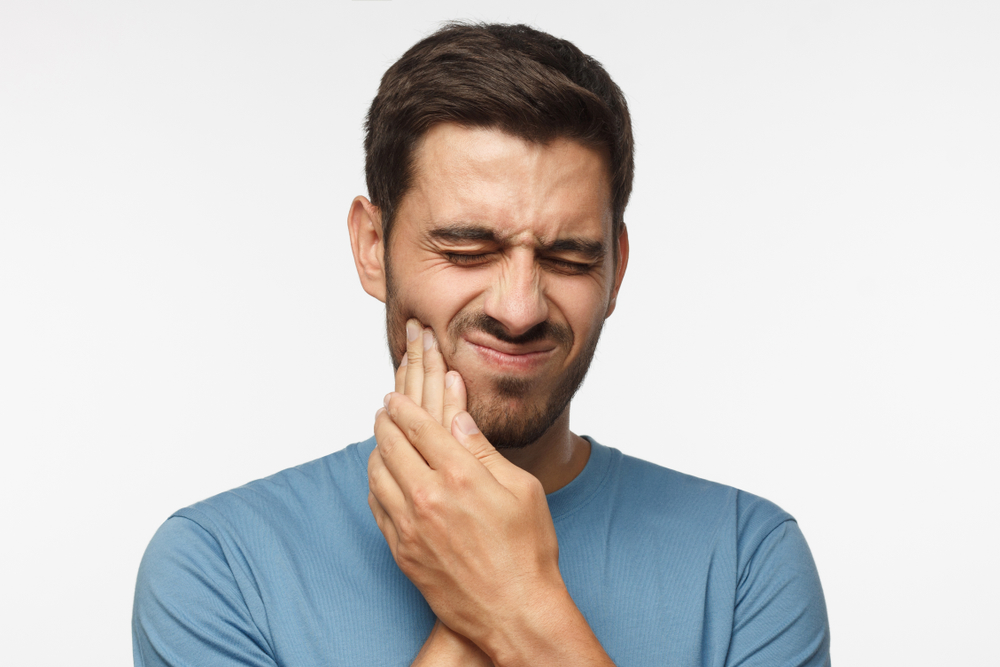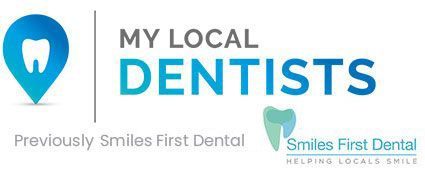Understanding What Causes Toothache: Causes & Prevention Tips

Toothaches can be painful and frustrating and often happen at the most inconvenient times. Whether you’ve experienced a sharp or throbbing pain, a toothache can signify various dental problems. From tooth decay to gum disease, there are several causes of dental pain. In this blog post, we’ll explore what causes toothache and provide some prevention tips to help you maintain good oral health.
Causes of Toothache
Tooth Decay
What is Tooth Decay?
Tooth decay is a bacterial infection that damages the structure of teeth, resulting in cavities. When the bacteria in the mouth feed on the sugars in foods and drinks, they produce acids that attack the tooth enamel, the hard, protective outer layer of teeth. Over time, repeated acid attacks weaken the enamel, leading to cavities that can cause tooth pain and sensitivity.
Toothache and Tooth Decay
If untreated, tooth decay can spread to the inner part of the tooth and infect the dental pulp, which contains nerves and blood vessels. This can result in severe toothache, throbbing pain, and even abscesses, pus-filled sacs that form at the root of an infected tooth. In some cases, the infection can affect the surrounding gum tissue and lead to periodontal disease, which can cause tooth loss.
Prevention Tips
The good news is that tooth decay is preventable. Simple dental hygiene practices, such as brushing with fluoride toothpaste, flossing daily, and visiting the dentist regularly, can help keep your teeth healthy. You can also reduce sugary foods and drinks and avoid acidic foods that can damage your teeth. Additionally, consider wearing a mouthguard if you grind your teeth or have dental problems that increase your risk of tooth decay.
Preventive dental treatment, such as dental sealants and fluoride treatments, can also help protect your teeth against decay. Dental sealants are thin plastic coatings that cover the chewing surfaces of teeth and prevent bacteria from getting into the crevices. Fluoride treatments, on the other hand, can strengthen the tooth enamel and make it more resistant to acid attacks.
Gum Disease
What is Gum Disease?
Gum or periodontal disease is a bacterial infection affecting the gum tissue. The earliest stage of gum disease is known as gingivitis. If you have gingivitis, your gums may swell, become red and bleed easily. However, with proper dental care and treatment, gingivitis can be reversed. If it progresses into periodontitis, the gums pull away from the teeth, forming pockets of bacteria that can cause further damage to the gum tissue and bone structure supporting the teeth. Advanced gum disease can lead to tooth loss and, in severe cases, impact your overall health.
Toothache and Gum Disease
Toothache is one of the most common symptoms of gum disease. Gum disease can cause tooth decay, an infected tooth, and dental pain. The pain can sometimes be sharp or throbbing, leading to discomfort when eating, drinking, or speaking. Teeth grinding is also a potential side effect of gum disease due to the irritation caused by the swollen gum tissue. If you experience toothache because of gum disease, seeing a dentist as soon as possible is important.
Prevention Tips
Prevention is key when it comes to gum disease. Here are some tips to help prevent gum disease:
- Brush your teeth twice a day with fluoride toothpaste.
- Floss daily to remove food particles and plaque buildup between your teeth.
- Use an antibacterial mouthwash.
- Eat a well-balanced diet, and limit sugary and acidic foods.
- Get regular dental check-ups and cleanings at the dentist.
- Quit smoking or using tobacco products.
Tooth Abscess
Definition of Tooth Abscess
A tooth abscess is a dental problem in which pus accumulates inside a tooth or in the bone tissue surrounding the tooth. Various factors can cause this, but the most common is a bacterial infection reaching the tooth’s pulp. Other causes include tooth decay, gum disease, and teeth grinding. An abscess can occur in any tooth, but it is most common in molars and wisdom teeth.
How Tooth Abscess Can Cause Toothache
A tooth abscess can cause severe toothache and other dental problems. The abscess can pressure the tooth’s root, causing throbbing pain. The tooth pain can be sharp, shooting, or a dull ache that radiates to other parts of the mouth. Other tooth abscess symptoms include sensitivity, mild toothache relief, and chewing tenderness. If left untreated, the abscess can spread to the surrounding gum tissue and bones, causing further complications such as periodontal disease and tooth loss.
Treatment Options
The most common treatment for tooth abscess is root canal treatment. This involves removing the infected pulp from the abscessed tooth, cleaning the root canals, and filling them with a sealer to prevent further infection. A dental extraction may be required to remove the affected tooth in more severe cases. Antibiotics may also be prescribed to help fight the bacterial infection.
Prevention is also key in preventing tooth abscesses. Good oral hygiene practices such as brushing your teeth twice daily with fluoride toothpaste, flossing, and regular dental check-ups can help prevent tooth decay and gum disease. Avoiding hard or crunchy foods that can crack or damage teeth can also help prevent tooth abscesses.
Tooth Sensitivity
Tooth sensitivity is the medical term that describes the sharp pain some people feel when they eat or drink something cold, hot, sweet, or acidic. The tooth pain can be brief, lasting only a few seconds, or linger longer, often becoming a persistent mild toothache. There are many reasons why we might experience tooth sensitivity.
Tooth decay, gum disease, fractured teeth, and infected teeth can all cause tooth sensitivity. Tooth grinding, tooth enamel erosion, and improper brushing techniques are other reasons for sensitivity. Even wisdom teeth coming through can cause mild discomfort. The best way to know why your teeth are sensitive is to schedule a dental appointment.
Preventing tooth sensitivity is the best way to deal with it. It would help to start using the right tools, like a soft-bristled brush. Avoid over-brushing and use fluoride toothpaste. Limit acidic foods and drinks like sodas and citrus fruits. If you grind your teeth, learn to use a mouthguard. Floss daily and make regular dental check-ups part of your routine.
Getting help early can stop the problem from escalating into more significant issues. Mild toothache relief can come from over-the-counter medication, but a dentist can identify the underlying problem and give you the most effective treatment. Root canal treatment, dental fillings, crowns, or other similar dental treatments, can cure sensitivity when the cause is dental problems.
If the bacterial infection has spread, you may require antibiotics before additional treatment commences. An abscessed or broken tooth might need more drastic measures, including tooth extraction or a root canal, to eliminate dental pain and prevent tooth loss.
Teeth Grinding

Teeth grinding may not show immediate signs or symptoms. Surprisingly, many individuals unconsciously grind their teeth while asleep. The effects of teeth grinding, however, can cause wear and tear to your teeth, tooth decay, gum disease, and dental-related health problems. Teeth grinding can cause toothache by putting pressure on your teeth and gums, eventually leading to cracked teeth. Prolonged teeth grinding can make your teeth more prone to bacterial infections that lead to abscesses, which cause sharp tooth pain and swelling.
The following are some prevention and treatment options for teeth grinding. A common and inexpensive method is by using fluoride toothpaste. Fluoride toothpaste doesn’t cure teeth grinding but helps to manage tooth pain. Besides that, avoid consuming foods and drinks that contain caffeine, such as chocolate, cola, tea, or coffee, which stimulate teeth grinding.
It’s advisable to see a dentist if your teeth grinding is frequent or prolonged. A dentist can provide a dental guard, a custom-made device you wear at night. This device is useful because it separates lower and upper teeth, which prevents teeth from grinding. It helps relieve mild toothache and prevents further dental problems like tooth decay. More severe cases of teeth grinding need dental treatment such as root canal treatment, tooth extraction, or other dental treatment based on the extent of the damage.
The periodontal tissues support and cushion your teeth from excessive force, which can be damaged by teeth grinding. Treatment usually concentrates on the cause of the toothache and its effect on the gum tissue. Treatment could include deep cleaning, a customised mouth guard, or surgery. In extreme cases of teeth grinding, the affected tooth may require an extraction; this is necessary to prevent widespread damage to the supporting teeth. A cracked or broken tooth from teeth grinding develops into an infected tooth with a bacterial infection.
Other Causes of Toothache
Sinus Infections
Believe it or not, sinus infections can cause toothache. Sinus infections occur when the sinuses become inflamed or infected, and the pressure from the sinuses can cause throbbing tooth pain in the teeth. The upper teeth are typically affected, but the pain can be felt in any tooth. Sinus toothache is often described as a dull, throbbing pain that worsens when you bend forward. If you have a sinus infection, it is important to see a healthcare professional for treatment, which may include nasal decongestants or antibiotics.
Jaw Joint Disorders
Jaw joint disorders, including temporomandibular joint (TMJ) disorders, can cause referred pain. TMJ disorders occur when the joint that connects your jawbone to your skull becomes inflamed or damaged, causing pain in the jaw, face, and teeth. A toothache caused by TMJ disorders is often described as a sharp tooth pain that comes and goes. Treatment for TMJ disorders may include medication, physical therapy, or surgery.
Trauma to the Teeth or Jaw
Trauma to the teeth, like a cracked tooth or jaw, such as a sports injury, car accident, or fall, can cause toothache. If you have experienced a tooth fracture or trauma to your jaw, you may experience severe pain, swelling, and bleeding. See a dentist or healthcare professional if you have experienced dental trauma as soon as possible.
Some Home Remedies For Toothache
Toothache can be highly distressing and requires prompt intervention to alleviate discomfort and address the underlying cause. If you’re suffering from a toothache, consider immediate relief methods such as:
- Rinse your mouth with warm salt water.
- Apply a cold compress to the affected side of your face to reduce inflammation.
- Over-the-counter pain relievers can provide temporary relief.
- Topical numbing gels containing benzocaine may also help.
- Clove oil has been used traditionally for dental pain, but be careful not to use too much as it can worsen the pain.
While these remedies can help alleviate the immediate discomfort, it is important to schedule a visit to your dentist as soon as possible, as toothaches often indicate deeper problems. So, let your dentist diagnose the problem and plan a treatment accordingly.
Conclusion
Toothaches can be caused by various dental problems, ranging from decay to gum disease, teeth grinding, and even wisdom teeth. The importance of good oral hygiene cannot be overstated, as regular brushing and flossing and seeing a dentist regularly can help prevent dental pain. If you experience tooth pain, seeing a dentist to determine the cause and appropriate dental treatment is important. Simple methods like a cold compress or fluoride toothpaste can relieve mild toothache. Still, only a dental professional can provide a long-term solution to dental pain. Remember, prevention is always better than cure when maintaining good oral health! So, if you want to know more about what causes toothache, contact us todayto schedule your first appointment and get advice from our experienced dentists!
References:
Toothache and swelling https://www.healthdirect.gov.au/toothache-and-swelling
Dental problems https://www.healthdirect.gov.au/dental-problems

